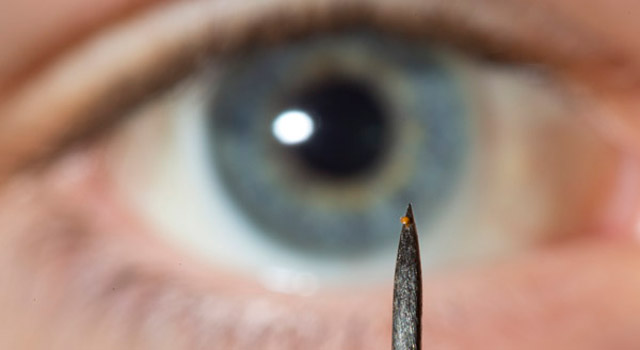Page 96 • (1,155 results in 0.101 seconds)
-
Technology. There, all seniors in the natural sciences will present the findings of their capstone research, or the results of their projects. A large number of alumni also attend the festival, some of whom discuss the work they are doing in the industry. Kakar referred to it as “bringing the whole family together.” “Festival” is the operative word here – the event bubbles with excitement, according to Hauser. “Interview,” might be another apt descriptor – the event is known to draw employers who are
-
properties, designing tiny batteries, to developing “greener” ways to make drugs to treat cancer or sickle cell anemia. In fact, 10 students worked with faculty members this past summer on independent research projects as part of the Natural Sciences Division Undergraduate Research Program, supported by external grants as well as endowed PLU research fellowships. Upon getting some exciting results after months in the lab, these students have the chance to present their work both on campus and at
-

two-year grant through the Murdoch College Research Program for Life Sciences that covers work by the students and professor from June 2011 through May 2013. As part of the grant agreement, PLU supported sending the group this past summer to a meeting of the American Society of Plant Biologists in Austin, Texas. At the ASPB meeting the students were able to present their research to Washington State University scientist Bryan Thines, who has done groundbreaking research in jasmonic acid signaling
-

yourself out there. This is a period to try new things and not limit your options. Explore the different paths available to you. On May 7, 2023, Henri Coronado-Volta was awarded the "Frosty Westering Inspiration Award" at the 2023 Luteys. (PLU / Mark Albanese) Read Previous Emily Struck ’23 reflects on her time at PLU, captivated by chemistry and research Read Next Opening Doors: PLU Partnership with PNWU creates new opportunities for PLU pre-health sciences graduates COMMENTS*Note: All comments are
-
interested in dental school should take the sequence that is required for their intended major. Students majoring in biology usually take the PHYS 125/126 series with accompanying labs, while those majoring in chemistry or physics must take the PHYS 153/154 series with accompanying labs.Social Sciences, Humanities and Art Courses Most dental schools require at least one semester of psychology. We also recommend that you take a course in 3-dimensional art, such as sculpture or 3-dimensional design, to
-
interested in dental school should take the sequence that is required for their intended major. Students majoring in biology usually take the PHYS 125/126 series with accompanying labs, while those majoring in chemistry or physics must take the PHYS 153/154 series with accompanying labs.Social Sciences, Humanities and Art Courses Most dental schools require at least one semester of psychology. We also recommend that you take a course in 3-dimensional art, such as sculpture or 3-dimensional design, to
-
By Maria Flores '20Division of Social Sciences A yearlong sabbatical in 2017-18 provided Dr. Brenda Llewellyn Ihssen, Dr. Michael Schleeter, and Dr. Seth Dowland with opportunities to rethink their courses and pursue scholarly interests. For Dr. Dowland and Dr. Schleeter, sabbatical was a time to step away from teaching and service obligations so that they could focus on scholarship relevant to their teaching. For Dr. Llewellyn Ihssen, sabbatical provided an opportunity to teach and serve in a
-

graduated because it was so important to her.” The next step in Ceynar’s research will include partnering with female professors in the natural sciences to study how student expectations of professors vary by discipline and gender. This is a growing research field, with more studies on the extra burdens students place on faculty of color, as well. One way Ceynar hopes to help change the way students treat their female professors is by sharing these findings with them. Traditional formalities are
-
Plant Sciences at Somerville College. Each week I was assigned an essay topic and given a list of readings pertaining to that topic. After researching the essay topic, I then wrote an essay of approximately 2,000 to 2,500 words, answering the prompt. For each essay I spent about 10–20 hours researching the topic prior to writing the essay. After writing each essay I would email it to my professor, and we would discuss it at our next meeting. My professor and I met for an hour once a week for the
-
use my title once I graduated because it was so important to her.” The next step in Ceynar’s research will include partnering with female professors in the natural sciences to study how student expectations of professors vary by discipline and gender. This is a growing research field, with more studies on the extra burdens students place on faculty of color, as well. One way Ceynar hopes to help change the way students treat their female professors is by sharing these findings with them
Do you have any feedback for us? If so, feel free to use our Feedback Form.


